Animals
-
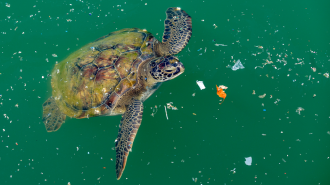 Animals
AnimalsSea turtles may confuse the smell of ocean plastic with food
Sea turtles respond to the smell of plastic that’s been in the ocean similarly to food, suggesting the reptiles may end up eating the harmful debris.
-
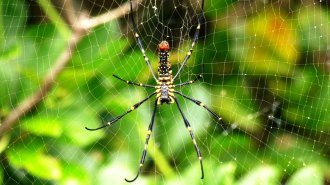 Animals
AnimalsBright yellow spots help some orb weaver spiders lure their next meal
Experiments with cardboard arachnids suggest that orb weaver spiders have evolved yellow colorations on their undersides to attract bees and moths.
By Yao-Hua Law -
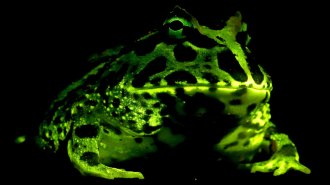 Animals
AnimalsGlowing frogs and salamanders may be surprisingly common
A widespread ability to glow in striking greens, yellows and oranges could make amphibians easier to track down in the wild.
-
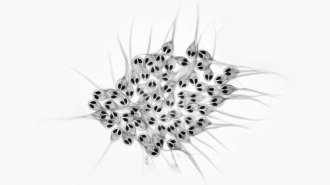 Life
LifeA distant cousin of jellyfish may survive without working mitochondria
A tiny creature that parasitizes salmon is the first known multicellular eukaryote without a mitochondrial genome, a hallmark of complex life.
-
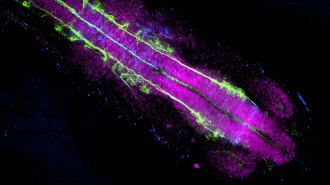 Life
LifeHow African turquoise killifish press the pause button on aging
The fish’s embryos can enter a state of suspended growth to survive dry spells. A study shows that state protects them from aging, and hints at how.
-
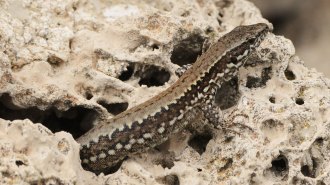 Life
LifeA new lizard parasite is the first known to move from mom to baby
Nematodes were found living in a lizard’s ovaries and the braincase of her embryos — the first evidence of a reptile parasite that jumps generations.
By Pratik Pawar -
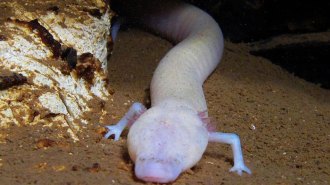 Animals
AnimalsOne blind, aquatic salamander may have sat mostly still for seven years
Olms may live for about century and appear to spend their time moving sparingly.
By Jake Buehler -
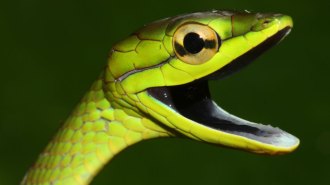 Animals
AnimalsSnakes suffered after a frog-killing fungus wiped out their food
A frog-killing fungus that swept through Panama had a hidden effect. A new study finds that snake diversity declined post-fungus at one field station.
-
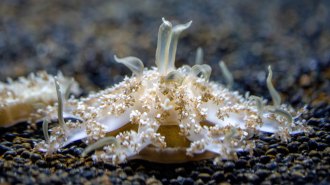 Animals
AnimalsJellyfish snot can sting swimmers who never touch the animal
Researchers have found mobile cellular blobs coated with stinging cells in mucus from a jellyfish that sits upside-down on the seafloor.
-
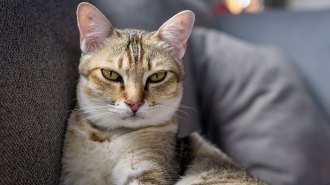 Animals
AnimalsWith a litter of tactics, scientists work to tame cat allergies
New research may reduce the allergen levels of house cats or make people less reactive to our feline friends.
-
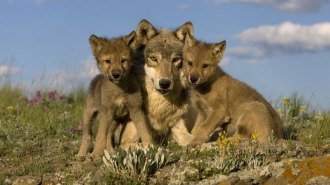 Life
LifeWolves regurgitate blueberries for their pups to eat
The behavior, documented for the first time, suggests that fruit may be more important to wolves than previously thought.
By Jake Buehler -
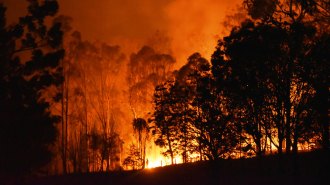 Ecosystems
EcosystemsWill Australia’s forests bounce back after devastating fires?
Intense bushfires that have blazed down Australia’s eastern coast could have long-lasting effects on the continent’s unique plants and animals.